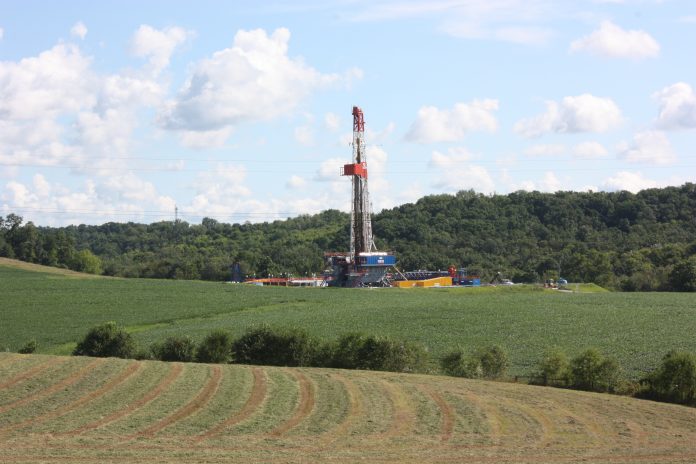Pressure is mounting on oil and gas companies to show that they’re environmentally and socially conscious. Some Marcellus Shale drillers are stepping up.
Chesapeake Energy Corporation announced April 13 that it’s launching a pilot program to produce certified responsibly sourced natural gas at certain well pads in northeast Pennsylvania’s Marcellus Shale fields and northwest Louisiana’s Haynesville Shale.
To accomplish this, Chesapeake is partnering with Project Canary, a Denver-based climate tech company, to do continuous on-site emissions monitoring, as well as going through a third-party certification process to analyze 300 data points looking at the operational impacts on water, air, land and community.
The pads for Chesapeake’s pilot program are in Bradford and Wyoming counties, according to a company spokesman. Chesapeake is the state’s third-largest natural gas producer.
“We have seen premiums paid for responsibly sourced gas in both domestic and international markets,” Brian Miller, vice president of growth and policy of Project Canary, told Farm and Dairy.
EQT made a similar announcement in late January. Its pilot program with Project Canary is taking place on two well pads in southwestern Pennsylvania. EQT is the largest producer of natural gas in the U.S. and has leased more than 1 million acres combined in Pennsylvania, West Virginia and Ohio.
Why does it matter
As much as one might hope that big energy companies are doing this out of the goodness of their hearts, it really all comes down to money.
Now, more than ever, investors and customers want to know the product they are buying was produced in a socially responsible way. The technical term for this is Environmental, Social and Governance, or ESG.
Chesapeake chief executive officer Doug Lawler said, in a statement, that the company’s new partnership with Project Canary will allow them to “further demonstrate our commitment to generating shareholder value and ESG excellence.”
The first transaction involving responsibly sourced gas, or RSG, happened in September 2018 when Southwestern Energy announced a deal to sell certified gas to utility New Jersey Natural Gas at a premium from a group of Marcellus Shale wells in West Virginia’s panhandle.
More than a dozen RSG deals have been done so far, Miller said. There will be more deals to come. Utilities are requesting RFPs for responsible sourced gas, he said.
EQT said an unnamed global energy company agreed to buy a portion of the gas produced from its pilot program. Details of the agreement were kept private.
Chesapeake said it may expand the pilot program depending on “initial findings and market conditions.”
How getting certified works
The accepted certification for responsibly sourced natural gas is through TrustWell.
The TrustWell program was originally created in 2014 by a Texas-based company called Independent Energy Standards Corp. The company merged with Project Canary in August 2020 to form a new company called International Environmental Standards.
The certification process has two parts. One is measuring emissions, particularly methane. Project Canary provides the continuous monitoring equipment that takes samples every second for 12 constituents. That data is uploaded to a cloud database every minute. There are typically three sensors on a well pad to be able to triangulate the source of an emission.
“We’re on the ground, on the pad, in real time,” Miller said. “It’s giving you actionable data.”
This sort of continuous monitoring is voluntary in the Appalachian Basin and in most other states. In Colorado, where Project Canary is headquartered, new regulations call for any well drilled after May 1 to have continuous monitoring for the first six months of production.
Methane, the primary component of natural gas, accounts for nearly 10% of U.S. greenhouse gas emissions from human activities. It’s more potent than carbon dioxide in the short term.
Agriculture is listed as the top source for methane emissions domestically, according to the U.S. Environmental Protection Agency, followed closely by energy production, mostly oil, gas and coal. Natural gas systems put out 157.6 million metric tons of methane in 2019.
Groups like the Environmental Defense Fund and other researchers found through their own monitoring efforts that the amount of methane released by oil and gas production sites, and infrastructure further down the supply chain was underreported by the EPA.
The TrustWell certification process also looks at various production practices and how those things impact air, land, water and the surrounding community — things like site design, spill response plans, well integrity, water sourcing and community engagement.
All of this adds up to one of four ratings: rated, silver, gold or platinum. Miller said most buyers are looking for responsibly sourced gas with a TrustWell rating of gold or platinum.
(Reporter Rachel Wagoner can be contacted at 800-837-3419 or rachel@farmanddairy.com.)










